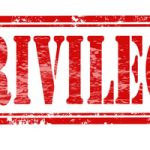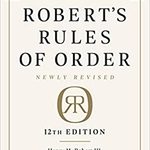Posts
The big moment is here. You’ve done your due diligence by: reviewing any emergency declarations affecting local government meetings in your state, studying how your body can proceed in light of the Coronavirus/COVID-19 emergency, planning with your staff, consulting your attorney, and choosing an online platform. You’re all set to launch your first totally…
Moving your meeting online presents special challenges. Here are our best tips for success. Make sure you can meet this way. Refer to state law and your bylaws to make sure you can meet by telephone or videoconference. Robert’s Rules of Order Newly Revised, 11th edition, discusses this issue on pp. 97-99. According to…
Updated 5/11/2020 We’re having to adjust to a different world right now. In general, it’s always best to have an in-person meeting on matters of great importance. This provides the fullest opportunity to discuss, debate, consider alternatives, and come to agreement. When that’s impossible, you have to look at alternatives. This article lays out…
Updated October 3, 2023 Some years ago, I had a dramatic exposure to the motion “to Reconsider.” At a 2-day meeting of our professional society board, one member (I’ll call him “Alex”) proposed that our society spend $4000 on radio spots in Washington, DC. He felt that we needed to develop a public relations strategy,…
Have you ever had one of those desperate moments in a meeting where you just don’t know what to do? I certainly have! There is a great tool to use at such a time. The chair can direct the members to “stand at ease.” This means that business of the meeting is on pause…
Guest post by Craig Freshley. We are big fans of Craig’s wisdom and are delighted to share this post with our readers. Visit Craig’s website for more superb tips on meetings and leadership. In principle, even though multi-tasking seems ever more popular, the fact remains that focusing on one goal at a time is the…
The basic principle underlying conflict of interest is easy to state but applying it in real-life cases can be complicated. In a nutshell, when you accept a position on a local government body or a nonprofit board, you are obliged to put the interests of the organization above your own personal interest, and you can’t…
A reader writes to say that in his city council, the members frequently say, “Point of Personal Privilege,” and then go on to give their opinion about something. This is wrong. Robert’s Rules of Order explains that in a meeting, members may raise a Point of General Privilege, or a Point of Personal Privilege.…
Have you ever attended an annual meeting of an organization and been asked to vote to approve the minutes from the previous year’s annual meeting? How well did you remember that previous meeting? I am guessing that your memory was a bit fuzzy, unless something dramatic happened. There is a better way. Use Minutes…
Here are the sample minutes provided in Robert’s Rules of Order Newly Revised, 12th edition, in section 48:8. The regular monthly meeting of the L.M. Society was held on Thursday, January 4, 20__, at 8:30 P.M., at the Society’s building, the President being in the chair and the Secretary being present. The minutes of the…











